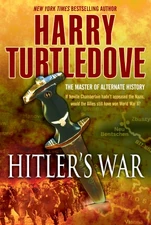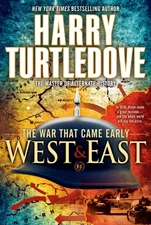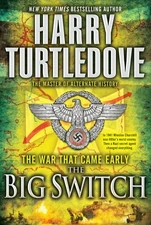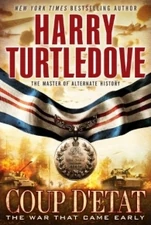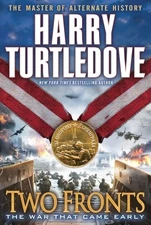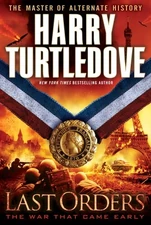| Vaclav Jezek | |
| Fictional Character | |
| The War That Came Early POD: July 20, 1936; Relevant POD: September 29, 1938 | |
| Appearance(s): | Hitler's War through ? |
| Type of Appearance: | Direct POV |
| Nationality: | Czechoslovakia |
| Occupation: | Cab driver, soldier |
Vaclav Jezek was a Czeckoslovak corporal during the Second World War. While serving in France, he became an expert sniper, a talent he brought to the Spanish Republicans in 1940 after the Hess Agreement temporarily made France an ally of Germany. In 1941, he became famous as the man who killed Francisco Franco.
Soldier and Refugee: 1938-39
Jezek was a cab driver in his civilian life. In 1938, Jezek participated in the defense of Czechoslovakia against the German invasion. Jezek participated in the 30 day fight, but as Czechoslovakia's fate soon became clear, Jezek was one of several soldiers who crossed the border into neighboring Poland. He was detained there for some weeks before being transferred to Romania by train, and then to France by a Greek freighter. A Czechoslovak government-in-exile had been established in France.
Jezek was one of several displaced soldiers from eastern Europe who fought the Germans in France. Among them were various Jews. Before the war, Jezek, while not rabidly anti-Semetic, still had little use for the Jews. This atitude changed as he saw his Jewish comrades acquit themself bravely in the face of battle.
In early 1939, Jezek acquired an anti-tank rifle, which he quickly grew proficient in using.
As in Czechoslovakia, Jezek was one again part of a retreat as French forces fell back towards Paris. However, by April, 1939, the German offensive was halted.
Sniper: 1939-1940
Jezek bacame proficient with his anti-tank rifle, using it as a sniper rifle to deadly effect. After a French officer told him the rifle would have to be taken away because of its obsoleteness, Jezek (using Sergeant Benjamin Halévy as a go-between) argued how good a sniper he was, and procured two truckloads of ammunition for his rifle; enough to keep him going for months, if not years. Unlike a normal rifle, the shock of impact from one if the 13 millimetre bullets could kill, even if it hit a non-fatal area. This earned Jezek fame/notoriety on both sides of the line.
Germany, frustrated by his proficiency, dispatched a sniper named Helmut Fegelein to kill Jezek. However, Fegelein proved too cocky for his own good; Jezek outwitted and killed him. Jezek continued sniping (once knocking an officer off of his motorcycle at half a kilometer (550 yards) behind his own lines), forcing the Germans to send Oberfeldwebel Marcus Puttkamer, brilliant sniper who nearly killed Jezek on more than one occasion. However, Jezek learned the sniper's patterns very quickly, and triumphed over Puttkamer .
By the winter of 1939, Jezek was at the front line, which had moved near the German supply dump at Laon. He noted the possibility of a successful Allied advance in the area with cynical optimism. He was not aware yet that Puttkamer had managed to groom a protege, Willi Dernen, who began hunting Jezek in the closing months of 1939.
Sniper in Spain: 1940-
After the Western democracies switched sides and joined Nazi Germany in the war with the Soviet Union in mid-1940, the Czech exiles became a embarrassment for France, who refused to side with Germany (the country that invaded their home) and fight the USSR (the only country that had actively tried to aid Czechoslovakia in 1938). Therefore, the country arranged for the bitter Czech soldiers to leave for the war-torn Spain, to fight for the Spanish Republicans.
There Jezek became something of a legend with his now-obsolete anti-tank gun, which was now useful as a sniper rifle. One of his most famous exploits was his killing of Francisco Franco in late-1941. He got wad of pesetas, leave and a letter of recommendation. He preferred the first two.
In 1942, he took out three CV-33 light tanks. For this, he got rewarded with a wad pesetas, a week-long leave and a letter of recommendation yet again.
Literary Comment
Although Vaclav Jezek shares a name with a historical soccer player and coach, they are not meant to be the same person.
- This article or subsection is a stub because the work is part of a larger, as-of-yet incomplete series.
| ||||||||||||||||||||||
